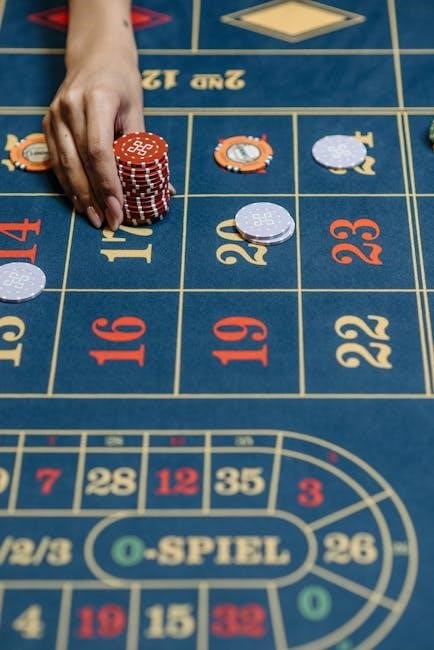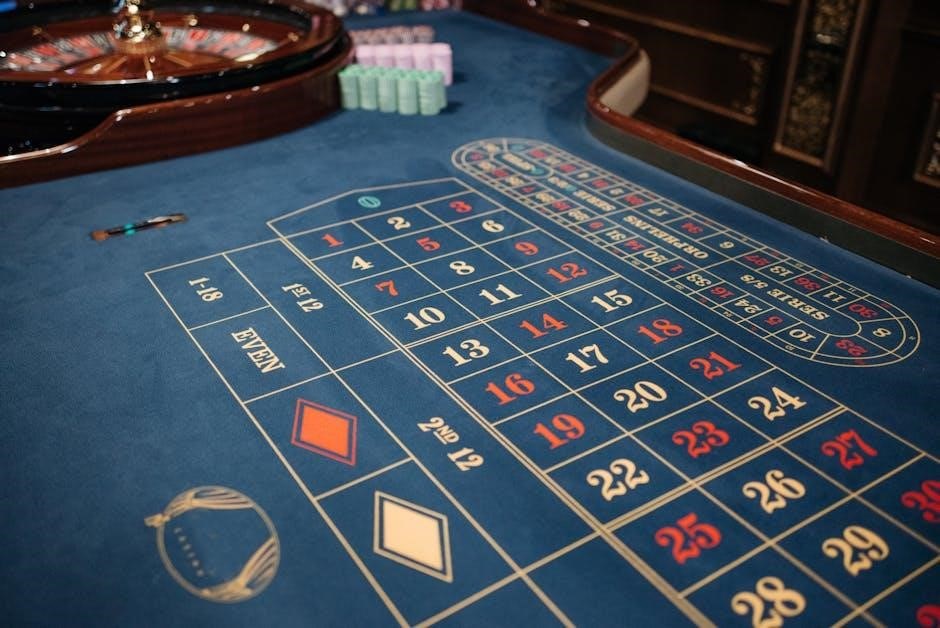
-
By:
- ruby
- No comment
red roulette pdf
“Red Roulette” by Desmond Shum is a gripping memoir exposing China’s elite, revealing corruption and power struggles. A New York Times bestseller, it offers a rare insider’s view, sparking global debate about China’s political and economic landscape.
1.1 Overview of the Book
“Red Roulette: An Insider’s Story of Wealth, Power, Corruption, and Vengeance in Today’s China” by Desmond Shum is a memoir that delves into the inner workings of China’s elite. Published in 2021 by Simon & Schuster, the book explores themes of corruption, power, and personal vengeance, providing a rare glimpse into the lives of China’s “red aristocracy.” Shum’s narrative, ghostwritten by John Pomfret, details his rise to prominence and the mysterious disappearance of his wife, Whitney Duan, creating a gripping tale of ambition and danger.
1.2 Importance of the Topic
The topic of “Red Roulette” is crucial as it sheds light on China’s secretive elite and the intersection of wealth, power, and corruption. Shum’s memoir provides a rare, firsthand account of China’s political and economic dynamics, offering insights into the “red aristocracy” and its influence. This narrative is vital for understanding the challenges of operating within China’s high-stakes environment and the global implications of its power structures. The book’s revelations make it a significant resource for scholars, policymakers, and anyone interested in modern China’s complexities.

Author Background
Desmond Shum, a businessman with deep ties to China’s elite, shares his journey in “Red Roulette”, a memoir ghostwritten by John Pomfret, revealing his rise and struggles.
2.1 Desmond Shum and His Connection to China’s Elite
Desmond Shum, a former Chinese businessman, gained prominence through his memoir “Red Roulette”, detailing his rise within China’s elite. His marriage to Whitney Duan and alliances with top Communist Party officials propelled him into the billionaire class. Shum’s story exposes the inner workings of China’s “red aristocracy,” revealing how personal connections and political ties drive wealth and power. His experiences highlight the blurred lines between business and politics, offering a rare glimpse into China’s exclusive elite circles and their influence on the nation’s economy and governance.
2.2 The Significance of His Memoir
“Red Roulette” stands out as a rare, unfiltered account of China’s power dynamics, offering a unique perspective on corruption and elite politics. Shum’s memoir has gained international acclaim for its candid portrayal of China’s “red aristocracy” and its influence on business and governance. The book’s significance lies in its ability to shed light on the secretive world of China’s ruling class, making it a vital resource for understanding the nation’s political and economic landscape. Its publication has sparked global debates and controversies, further highlighting its importance.
Key Themes in “Red Roulette”
Wealth, power, corruption, and vengeance are central themes, exposing the interplay between China’s elite and its political system. The memoir highlights how corruption permeates society and undermines progress, while personal vendettas reveal the human cost of ambition and greed in a high-stakes environment.

3.1 Wealth and Power in Modern China
Desmond Shum’s memoir vividly portrays the entwined nature of wealth and power in China, revealing how the elite maintain control through crony capitalism and political connections. The book highlights the rise of billionaires like Shum, whose success was deeply tied to relationships with high-ranking officials. It exposes the corrosive influence of corruption, where personal alliances and favors often outweigh merit and legality. Shum’s journey illustrates the precarious balance between accumulating wealth and navigating the treacherous political landscape, where even the powerful can fall victim to systemic exploitation and betrayal.
3.2 Corruption and Its Impact on Society
Corruption in China, as detailed in “Red Roulette,” permeates every level of society, distorting markets and undermining trust in governance. Desmond Shum’s account reveals how bribes, favors, and political connections dictate business deals, creating an uneven playing field. This systemic corruption not only enriches the elite but also perpetuates inequality, leaving ordinary citizens disenfranchised. Shum’s personal experiences illustrate how even those who benefit from the system are ultimately trapped by its unpredictability and ruthlessness, highlighting the destructive cycle of greed and power that stifles genuine progress and reform.

The Role of the “Red Aristocracy”
The “red aristocracy” in China wields immense power, shaping politics and business through exclusive networks and family ties, as revealed in “Red Roulette,” influencing both the economy and society significantly.
4.1 Understanding the Term and Its Relevance
The “red aristocracy” refers to influential families tied to China’s Communist Party, holding significant political and economic power. Their connections enable them to shape policies and amass wealth, perpetuating inequality. Desmond Shum’s memoir, “Red Roulette”, highlights how this elite group operates, exposing corruption and systemic favoritism. The term underscores the blurred lines between politics and business, revealing a system where loyalty to the Party often trumps merit, creating a culture of privilege and control that deeply impacts society and governance.
4.2 How the “Red Aristocracy” Influences Business and Politics
The “red aristocracy” wields enormous influence over both business and politics in China, leveraging their connections to top Communist Party officials. Their political ties often secure lucrative deals and exemptions from regulatory scrutiny, creating an uneven playing field. In turn, their economic power reinforces their political clout, fostering a cycle of privilege. Desmond Shum’s memoir, “Red Roulette”, reveals how this elite group manipulates systems to maintain control, often at the expense of fairness and transparency, perpetuating corruption and cronyism.
Personal Stories and Experiences
Desmond Shum’s memoir shares his personal journey through China’s elite, detailing his rise and the mysterious disappearance of his wife, Whitney Duan, revealing high-stakes power struggles.
5.1 Desmond Shum’s Rise to Prominence
Desmond Shum’s ascent in China’s elite began through strategic alliances with powerful figures, including Whitney Duan. Together, they navigated the complex web of China’s political and business landscape, leveraging relationships with high-ranking officials. Shum’s ability to maneuver within this system led to significant financial gains, propelling him into the billionaire class. His memoir details how personal ambition and calculated risks intertwined with the volatile political environment, offering a rare glimpse into the inner workings of China’s power structure and its beneficiaries.
5.2 The Disappearance of Whitney Duan and Its Implications
Whitney Duan, Desmond Shum’s wife and business partner, vanished under mysterious circumstances, shocking China’s elite. Her disappearance underscored the dangers of crossing political boundaries in China. As a key figure in their rise to prominence, her fate remains unclear, symbolizing the risks faced by those entangled in the country’s power struggles. The incident highlights the fragility of trust and the high stakes of operating within China’s complex political landscape, leaving lasting questions about accountability and justice in such cases.

The Book’s Reception and Controversy
“Red Roulette” gained international acclaim as a New York Times bestseller, praised for its explosive revelations about China’s elite. Its controversial nature sparked intense debate worldwide.
6.1 Critical Acclaim and Reviews
“Red Roulette” received widespread critical acclaim, with CNN naming it a “must-read” and The Economist and Financial Times selecting it as a Best Book of the Year. Reviewers praised its explosive revelations about China’s elite, calling it a “rare insider account” by James Palmer of Foreign Policy. The memoir’s vivid portrayal of corruption and power dynamics resonated globally, earning it a spot as a New York Times bestseller. Its unflinching honesty has made it a pivotal work in understanding modern China.
6.2 Controversies Surrounding the Book’s Publication
The release of “Red Roulette” sparked significant controversy, particularly in China, where the book was heavily censored. The memoir’s revelations about corruption and power struggles within the Chinese elite led to a government crackdown on its distribution. Many online discussions about the book were restricted or removed, and its availability in China became severely limited. Internationally, the book fueled debates about censorship, transparency, and the risks faced by whistleblowers. Its publication underscored the challenges of critiquing China’s political system, both domestically and abroad.
“Red Roulette” offers a profound look into China’s power dynamics, revealing the dark underbelly of corruption and ambition. Its impact challenges perceptions of China’s rise and highlights the risks of speaking truth to power, leaving readers with a lasting impression of the complexities at play.
7.1 Final Thoughts on the Book’s Impact
“Red Roulette” is a powerful exposé that challenges readers to confront the harsh realities of China’s elite. Desmond Shum’s memoir has garnered critical acclaim for its unflinching portrayal of corruption and power struggles. The book not only sheds light on the inner workings of China’s political and economic systems but also sparks essential debates about accountability and justice. Its impact lingers, making it a must-read for anyone seeking to understand the complexities of modern China and the personal costs of speaking truth to power.
7.2 The Broader Implications for Understanding China
“Red Roulette” offers a vivid glimpse into China’s intricate power dynamics, revealing how corruption and cronyism shape the nation’s political and economic landscape. By exposing the “red aristocracy,” Desmond Shum’s memoir underscores the systemic issues plaguing China, from unchecked ambition to the suppression of dissent. The book challenges readers to rethink their understanding of China’s rise, highlighting the human cost of its meteoric growth. It serves as a stark reminder of the challenges in reconciling economic progress with moral accountability, making it essential for anyone seeking to grasp the complexities of modern China.